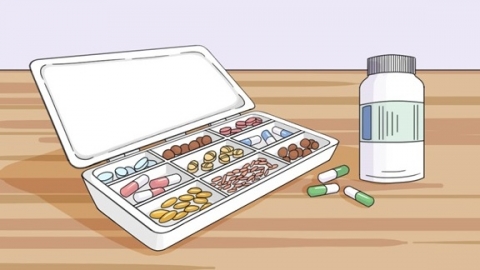What are the side effects of glucocorticoids?
Generally, glucocorticoid medications include hydrocortisone tablets, prednisone acetate tablets, dexamethasone tablets, etc. Side effects of glucocorticoids include inducing or exacerbating infections, elevated blood glucose levels, osteoporosis, peptic ulcers, and Cushing's syndrome. If medication is required, it is recommended to use it under medical guidance. Detailed analysis is as follows:

1. Inducing or exacerbating infections
Glucocorticoids may suppress immune function, reducing the body's defense capabilities, thus making it more susceptible to pathogens such as bacteria and viruses. This increases the risk of infections and may cause existing infections, such as tuberculosis, to spread and worsen.
2. Elevated blood glucose levels
Glucocorticoids promote gluconeogenesis and reduce glucose uptake and utilization by tissues, leading to increased blood glucose levels. For diabetic patients, this makes blood glucose control more difficult and increases the risk of diabetes-related complications.
3. Osteoporosis
Long-term use of glucocorticoids may inhibit osteoblast activity, reduce bone matrix synthesis, and simultaneously promote osteoclast formation and activity, accelerating bone resorption, leading to bone loss and increasing the likelihood of osteoporosis and fractures.
4. Peptic ulcers
Glucocorticoids stimulate the secretion of gastric acid and pepsin while inhibiting gastric mucus secretion, weakening the protective effect of the gastric mucosa. This can easily induce or worsen peptic ulcers, which may lead to gastrointestinal bleeding and perforation in severe cases, with symptoms such as stomach pain and black stools.
5. Cushing's syndrome
Long-term high-dose use of glucocorticoids may cause disturbances in fat metabolism and water-salt metabolism, leading to central obesity, manifested as moon face, buffalo hump, abdominal obesity, and relatively thin limbs. It may also be accompanied by symptoms such as hypertension and hypokalemia.
Patients taking glucocorticoids long-term should pay attention to supplementing calcium and vitamin D in daily life, consume more calcium-rich foods such as milk and soy products, and engage in appropriate outdoor activities and sun exposure to promote calcium absorption and prevent osteoporosis.










